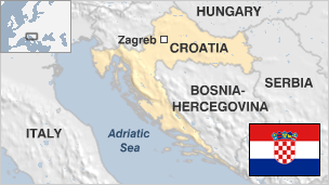
Facts and stats about Croatia
A country by the Adriatic Sea with whopping 5,835 km of coastline, which is all the more surprising given just 57 thousand km^2 of total area, Croatia is known to most Europeans only by amazing summer resorts and good but unsuccessful Eurovision contestants. Since this pocket of land by the Adriatic Sea is blessed with Mediterranean climate and culture, including the heart-protective Mediterranean diet, the life expectancy of Croatians is rather high - 73 years for men and 80 years for women in 2013 - although the area itself is not among the most developed in Europe. Croatia joined European Union only in 2013, and has thus only recently begun to exploit EU directives and funds to supplement its health care: the number of physicians per 1.000 is still only 2.4 and thus ranks among the bottom three countries with least doctors per 1.000 (other two are Slovenia and United Kingdom). This is in part also due to the relatively poor economic status, with trained experts leaving to seek better wages either in Slovenia, which remains the richest countries of ex-Yugoslavia - a desirable destination for expat Croatians especially for the similarity in language - further north in Austria and Germany; or overseas, for example in United States and Chile, due to Croatian communities established in those countries in the past century.
- Agriculture 122
- Background 11
- Conflict 1
- Cost of living 53
- Crime 129
- Culture 29
- Disasters 6
- Economy 2968
- Education 630
- Energy 1327
- Environment 237
- Geography 75
- Government 211
- Health 290
- Import 5
4.48 million
Population. Ranked 124th in 2013.
$13,227.47
GDP per capita. Ranked 47th in 2012.

53,910 sq km
Sq. km. Ranked 120th in 2008.